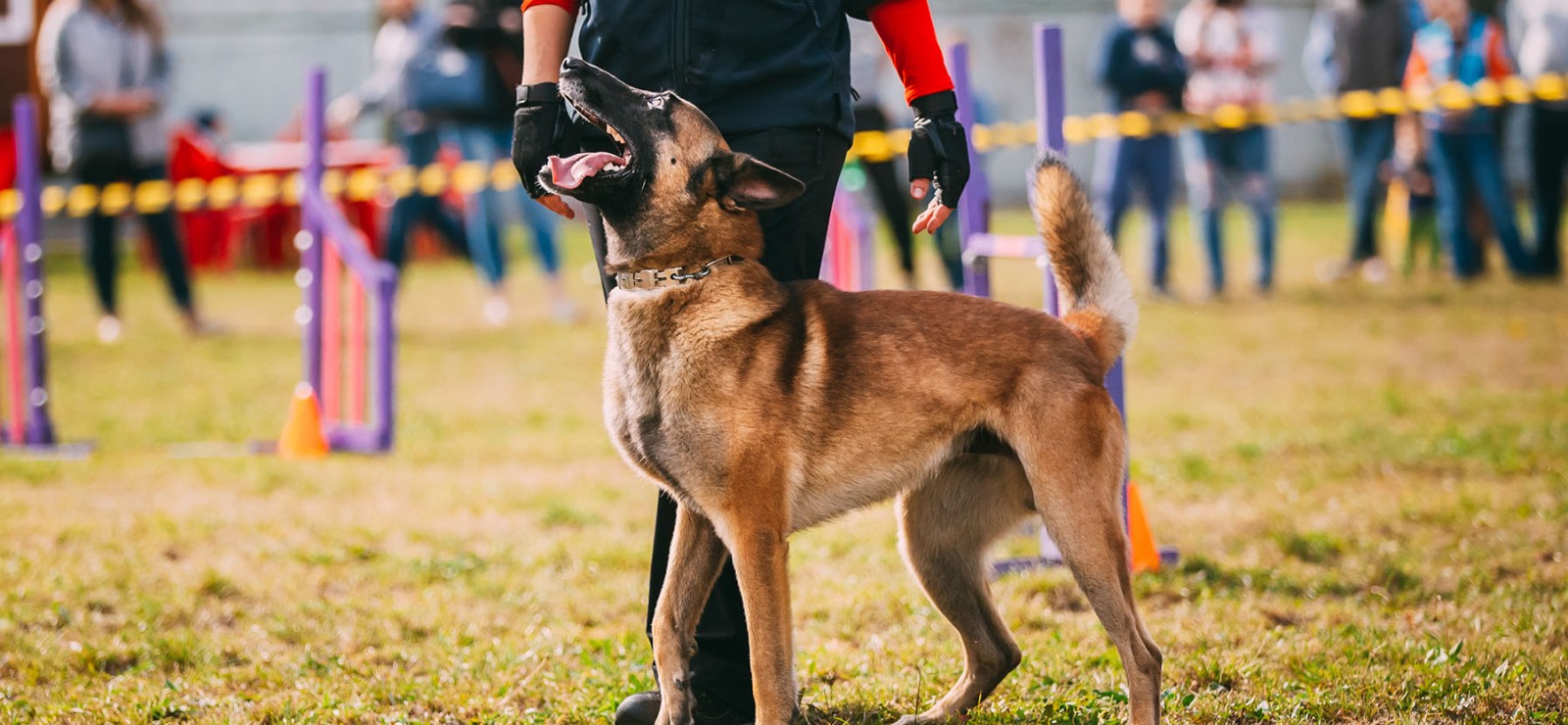Will we soon have dogs sniffing us out en masse in the fight against coronavirus? It’s possible, as tracker dogs appear to be more accurate in detecting coronavirus than traditional tests. Moreover, it is faster and a lot cheaper. “The first results from our corona dogs are very good,” says Ghent University researcher Chris Callewaert. “They achieve an average accuracy of 95 per cent.”
Tracker dogs are probably best known to the general public for their ability to detect drugs and explosives. But they are also able to smell the coronavirus. The use of tracker dogs for medical purposes is not new. Dogs are already being trained to detect different types of cancer. “Each cancer has its own specific odor and the dogs can smell that. It’s also the case with viral infections and even malaria,” says Chris Callewaert.
Success story
Ghent University has been working with the Belgian army, the federal police and the fire brigade for several months to train dogs to detect coronavirus. Together with his colleague Frank Gasthuys, Chris Callewaert has collected plenty of sweat samples to teach the dogs the smell of infected people. “The coronavirus gives off a specific scent in the sweat. Dogs had to learn to detect that scent.”
The training was successful. “The dogs achieve very good results with an average accuracy of 95 per cent,” it’s been shown. “And the chance of a false positive result by dogs is minimal.”
Faster, more accurate and cheaper
The results also show that the dogs can detect COVID-19 more accurately than the PCR tests that are currently widely used. “Those tests often give false negative results because the virus particles break down quickly if they are not transported in liquid nitrogen. You don't have that with dogs,” the researcher explains.
“The dogs can apparently also detect the virus earlier. With a PCR test, it takes about a week for sufficient measurable material to be present in the body. With a dog, detection is already possible from one to two days after infection. And asymptomatic people can also be easily identified by a dog. That is a real game-changer.”
It would also be a lot cheaper if we replaced the PCR tests with tracker dogs. “We are talking about a saving of some eight million euros for 42,000 samples. That's because PCR tests require a lot of people: to administer the test, to transport the test to a lab, and then the lab personnel themselves. With tracking dogs, all you need is a handler and the dog itself,” Callewaert explains. “And it’s much faster: you know the result within seconds.”
Done with testing?
Will we eventually be able to replace testing with tracker dogs? “That is not the goal, but in principle it could be done in certain scenarios. In countries such as Lebanon, Saudi Arabia, Finland, France and the United Arab Emirates, dogs are already being used at airports and land borders. People arriving by plane are immediately tested using dogs.”
So this could also be done in Belgium. “There are various options. The airports are first in line of course, but it should also be possible at large events or even in hospitals,” says Callewaert. “Of course it’s not up to us to decide where the dogs will be used. But the list of possibilities is long.”
Read also
What frogs can teach us about the origin of human hair
When in evolution did hair and nails originate? Ghent University researcher Kris Vleminckx shows that the genetic program to create human hair is at least 50 million years older than currently assumed.
Baby boom in the veterinary clinic thanks to Professor Ann Van Soom
Artificial reproduction methods, such as IVF and ICSI, have already been successfully applied in humans. But this has not been the case for many domestic animals. In horses, for instance, it has seemed to be an impossible task for a long time to fertilise the eggs outside the body. Until Ann Van Soom and her team started focusing on it.
These two students want to make a better world with sustainable dog food
What started as an exercise for a group work during their business engineering course is today, barely two years later, in 35 shops in our country. With Gutsy, Jack Lathouwers and Achilles Hannecart want to offer food that is healthy for your dog, but also for the planet.
Ghent University virologists combat viruses in new research facility
Every day, professor Xavier Saelens and his team work on new and improved vaccines and medicines to counter flu and corona viruses. Recently, they’ve been doing their work in a new research facility. “Our primary goal: to help those suffering from diseases.”




